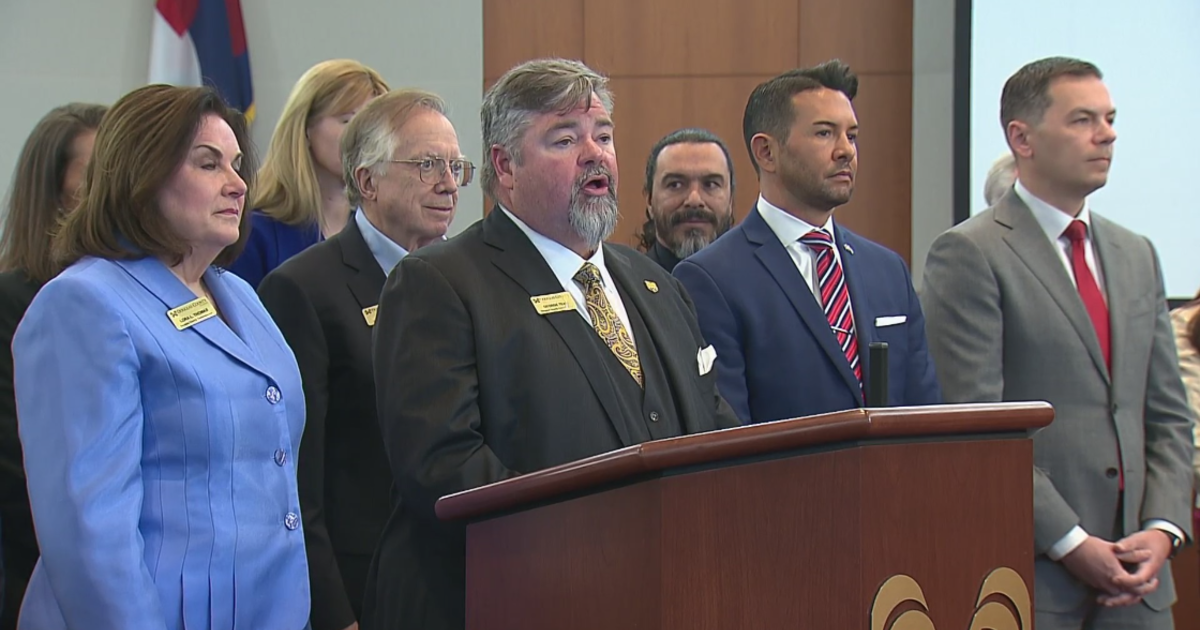Oil, Gas Regulators Say Next Flood Could Be Worse
DENVER (AP) - The nearly 92,000 gallons of oil and polluted water that spilled from storage tanks during last fall's catastrophic Colorado flood have washed away without a trace, but future floods could be more damaging, state regulators said Monday.
A report released by the Colorado Oil and Gas Conservation Commission said the commission will consider a series of new regulations designed to minimize the effects of floods and wildfires on oil and gas wells and tanks.
The suggestions from the commission's staff include requiring that storage tanks be anchored with cables so they're less likely to tip and spill and requiring all wells within a certain distance of waterways to be equipped with devices that allow operators to shut them down remotely.
The staff recommendations didn't say what that distance should be.
The commission is expected to discuss the proposed rules at a meeting this spring.
The report described the flood damage to storage tanks and production equipment as "substantial and expensive" but gave no dollar amount. It also said oil and gas production has still not returned to pre-flood levels but again gave no figures.
More than 2,650 wells were shut down in anticipation of the flood and nearly 300 remain shut down, the report said.
The September flood killed nine people and damaged or destroyed nearly 2,000 homes. Miles of roads were washed out and some sewage treatment plants were damaged.
The commission said more than 48,000 gallons of oil spilled from overturned or damaged tanks. More than 43,000 gallons of polluted water from wells also spilled from storage tanks. No significant leaks came directly from wells, commission officials said.
The commission's staff is also recommending new requirements that protective berms around oil and gas production facilities be made of steel, not dirt, and that no pits for temporary storage of waste liquids be located near waterways.
Laura Belanger of Western Resource Advocates, which lobbies for protecting water, air and other natural resources, said she was pleased that the proposals called for new rules and not recommendations to the energy industry.
"We're very wary of recommendations," she said. "We're very happy to see (the commission) staff is recommending these be integrated as regulations."
She praised the commission for keeping up with changes in the oil and gas industry and formulating new regulations to fit new technology.
The Colorado Oil and Gas Association, an industry group, said it does not believe any new regulations are necessary.
Tisha Schuller, president and CEO of the association, said in a written statement that the new report shows the industry was well prepared for the flood and responded quickly.
"This report also confirms that samples collected by the Colorado Department of Public Health and Environment and U.S. Geological Survey detected no oil and gas contaminants, while E. coli was identified in 14 samples above state standards," she said.
Schuller and others have said the presence of E. coli bacteria linked to damaged sewage treatment plants was a bigger threat than oil spills.
LINK: Colorado Oil and Gas Conservation Commission Staff Report
- By Dan Elliott, AP Writer
(© Copyright 2014 The Associated Press. All Rights Reserved. This material may not be published, broadcast, rewritten or redistributed.)
Colorado Floods: How To Help
The recent floods are impacting families and communities throughout Colorado, so CBS4 has compiled a list of ways you can support the local communities impacted by the floods.
More September Flooding Stories



